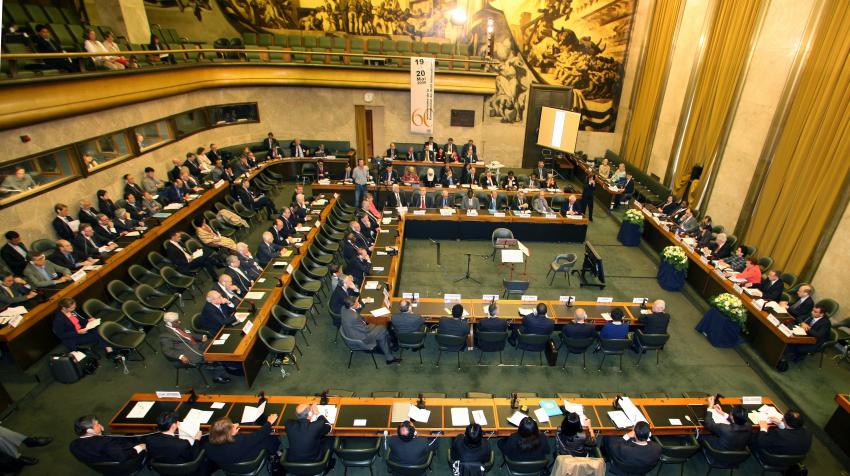The United Nations Academic Impact is informed by a commitment to support and advance ten basic principles, out of which the tenth is A commitment to the principles inherent in the United Nations Charter.
Principle number 2 in the United Nations Charter reads: All Members, in order to ensure to all of them the rights and benefits resulting from membership, shall fulfill in good faith the obligations assumed by them in accordance with the present Charter.
Test your knowledge about this UN principle of the with the UNAI Quiz!!
Scroll down to the bottom of this article to find the answers.
1. Is the principle of 'good faith' only applicable to the Charter?
a) Yes.
b) No.
c) It depends of the legal context.
2. Which is the basic premise of 'good faith'?
a) States must consider it if trying to avoid their obligations.
b) States cannot avoid the fulfillment of their obligations.
c) States must take it into account to avoid sanctions.
3. Why the 'good faith' is important?
a) Because it is a general principle of law.
b) Because it is understood as such by the international community.
c) Because of its role in international cooperation.
4. What if a provision of the Charter is applied in a literal sense?
a) In that case, obligations might be avoided.
b) In that case, obligations can be avoided.
c) Even in that case, obligations cannot be avoided.
5. The literal application of the Charter is the most important aspect in terms of obligations?
a) Yes.
b) No.
c) It depends of the context or situation in particular.
Answers:
1.b) Actually the Charter replicates what was already and widely considered a key principle of International Law which was then incorporated in Treaty Law through the Vienna Convention on the Law of Treaties. Article 26 of such Convention reads: Every treaty in force is binding upon the parties to it and must be performed by them in good faith. Hence it does apply not only to the Charter but to all treaties, regardless of its type and content.
2.b) Judge Roberto Córdova, from the International Court of Justice, in a dissenting opinion about the Judgment of 28 November 1958 regarding the Application of the Convention of 1902 Governing the Guardianship of Infants (Netherlands v. Sweden) said in relation to good faith and of its expressions, the principle of pacta sunt servanda, that it makes it impossible for the States to be released by their own unilateral decision from their obligations according to a treaty which they have signed. This applies to the United Nations Charter of course, which is a treaty in itself.
3.c) According to the Judgment of the International Court of Justice in the Nuclear Tests Case (Australia v. France) issued on 20 December 1974, one of the basic principles governing the creation and performance of legal obligations, whatever their source, is the principle of good faith. Trust and confidence are inherent in international cooperation, in particular in an age when this cooperation in many fields is becoming increasingly essential.
4.c) The International Law Commission, in the document Draft Articles on the Law of Treaties with commentaries (1966) stated that the Permanent Court of International Justice, in applying treaty clauses prohibiting discrimination against minorities, insisted in a number of cases, that the clauses must be so applied as to ensure the absence of discrimination in fact as well as in law; in other words, the obligation must not be evaded by a merely literal application of the clauses.
5.b) The Judgment of the International Court of Justice regarding the Case Concerning the Gabcikovo-Nagymoros Project (Hungary v. Slovakia), issued on 25 September 1997, states that it is the purpose of the treaty, and the intentions of the parties in concluding it, which should prevail over its literal application. The principle of good faith obliges the Parties to apply it in a reasonable way and in such a manner that its purpose can be realized. With this, it is understood that the purposes shown in article 1 of the Charter, which is the reason why the Charter was adopted in the first place, along with the intentions of the States back in 1945 when the Charter was adopted, should be in any case the guiding rule when it comes to the actual application of its provisions.

